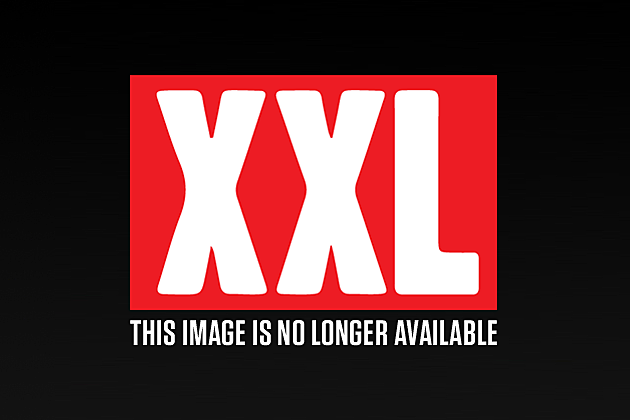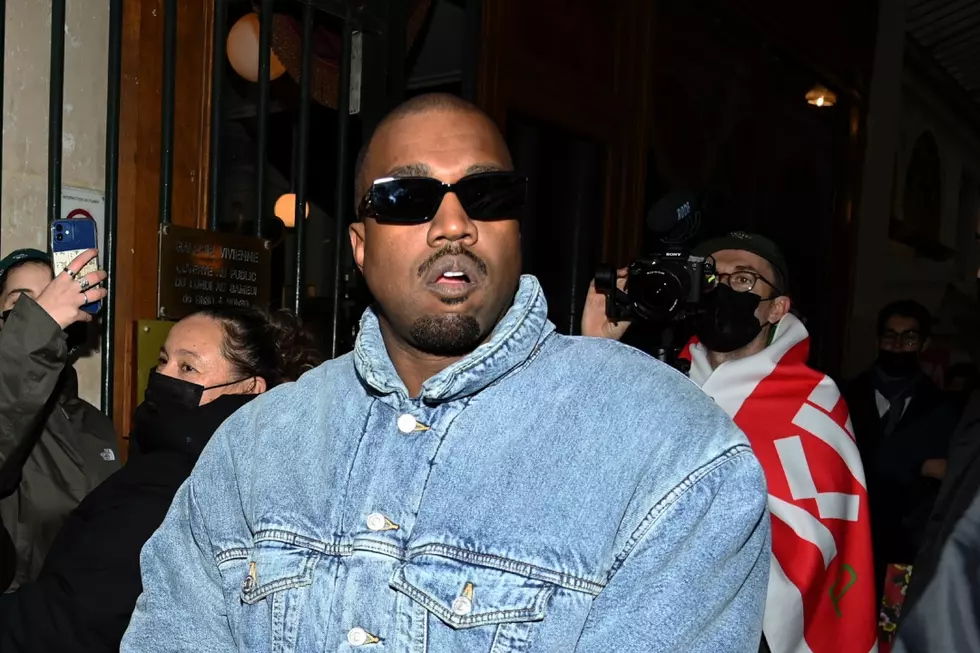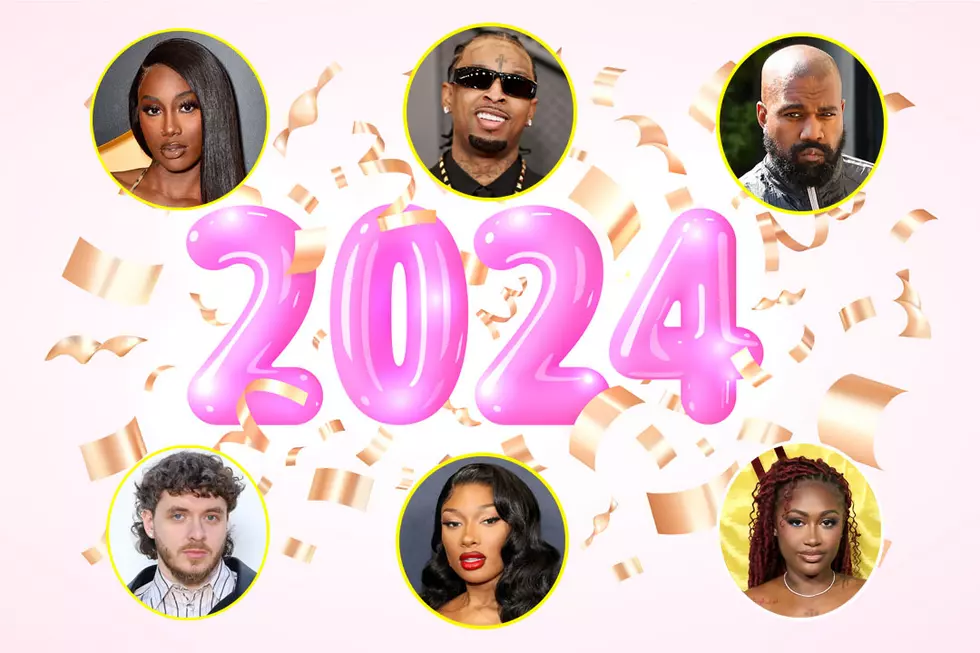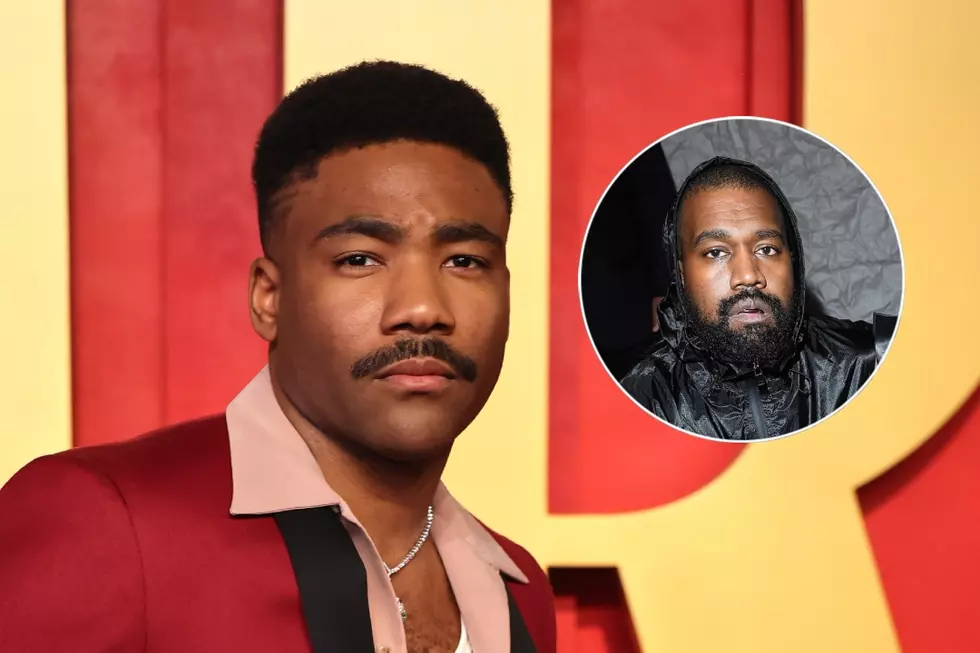
Meet The Engineer Who Works With Childish Gambino, Kanye West And Tyler, The Creator
Late Registration. Graduation. My Beautiful Dark Twisted Fantasy. All Grammy Award-winning Kanye classics, and all engineered and mixed by Minnesota-born, L.A.-based engineer and producer Andrew Dawson, whose credits also include work on Beyoncé's 4, T.I.'s Paper Trail, Rick Ross' Teflon Don, Snoop Dogg's Doggumentary, Jay Z's Blueprint 3, Nas' Hip Hop Is Dead and a stunning list of others that span hip-hop, pop and rock.
2013 has been another massive year for Dawson, as he's worked on three of the biggest and most diverse hip-hop albums that have dropped this year; Tyler, The Creator's Wolf, Kanye West's Yeezus and, most recently, Childish Gambino's because the internet, which dropped today (Dec. 10). "A lot of hip-hop records I've been working on this year have been really, really good ones," Dawson says via a phone call from his L.A. studio. "It's cool, 'cause I definitely catch a lot of energy from an artist like Tyler, Kanye or Gambino, and channel it into exactly what the vision they're trying to create is. It's a huge challenge, but it keeps me on my toes and keeps my day really interesting."
Breaking into the game as a mixer for Kanye's College Dropout, Dawson became 'Ye's go-to engineer up through MBDTF, mixing them from start to finish and winning three Grammys along the way and picking up valuable knowledge in an industry that tends to cycle through its veterans. "When I first started out as an engineer and producer the rock world was so incredibly closed," Dawson says. "But when I first started doing stuff with 'Ye or Common or Destiny's Child—the first artists I started working with—they were very open to, 'What if we tried this? How does this sound? This is this new thing! That is awesome, keep doing that.' Whereas in the rock and pop world, there are a certain number of things you can do and that's it."
With because the internet hitting stores officially today, XXL spoke to Dawson about mixing that album from start to finish—during which Gambino's core team was holed up in Chris Bosh's mansion in the Palisades, and Gambino would record every day wearing a t-shirt and boxer shorts—his work in Paris with Yeezy before Rick Rubin got his hands on Yeezus, and why creating a perfect album for Tyler, The Creator doesn't make Tyler very happy. —Dan Rys (@danrys)
Childish Gambino, because the internet
Andrew Dawson: Donald rented out [Chris Bosh's] mansion out in L.A. I don't think he's ever lived here, but it's a beautiful house out in the Palisades, and Donald set up a studio out there. I came by, and we initially started working on some production stuff. He liked a lot of the sonics I was doing, and while my production didn't make his album, I pretty much mixed the whole thing. I mixed every single song on that album, which is pretty rare for hip-hop or pop records; usually they have 20 engineers, 10 mixers, a team of producers, and his album was pretty much done by a core crew of maybe 10 people, including all the producers.
I was a fan of his previous work, and watched him grow with each album from his mixtapes, Camp to R O Y A L T Y, and every one got progressively better. I met him one night when he was DJing a fun. Grammy after party, and I was hanging out with fun. because I worked on their record. He was DJing and I met him, talked to him a little bit, and then 6-8 months later I wound up going up to Chris Bosh's mansion and we ended up just vibin', makin' songs and just hanging out together, and it turned into me mixing the whole album.
It's really kind of a cool creative process—everybody's there to work, there's not distractions for the sake of distractions, and it's really just a creative atmosphere that he created. And then we took the album back to my studio in Hollywood to mix; as awesome as his house was up in the Palisades, it really wasn't treated well for acoustics, so I had to do it in my studio. So he came through my studio and we finished up mixing there.
Did you see the screenplay he released? I'm gonna go out on a limb here, but to me this is a concept album the likes of which hasn't been done since Radiohead's Kid A, to me. He's created a world around this record, and I feel like that really... To me that's what I love about music and hip-hop, and my favorite hip-hop records, my favorite music records, are ones that are honest. Be honest. If you're gonna talk about partying, be honest about partying. If you're gonna talk about heartbreak, be honest about heartbreak, show the pluses, show the minuses, and I think Donald's captured that beautifully with this album, he's super honest about life, his feelings and emotions, and he's laying it out there for everybody, and I think fans are gonna really connect with that honesty.
Honesty, I feel like, is what will resonate with people and is what people are craving right now. Look at the comparison between Kanye and honesty—his first two records, "I ain't sayin' she a gold digger..." or, "The strippers, the drug dealers, Jesus walks with them." It's a classic present: here's an issue, here's both sides, some of it may be an oxymoron, some of it may be nonsensical, but this is the reality of the situation. Classic Kanye lines.
Kanye West, Yeezus
Dawson: The Yeezus sessions were different for me because the other Kanye albums I had been the main guy, I guess you could call it, the main engineer/mixer guy. The last album I did of his where I fulfilled that role was My Beautiful Dark Twisted Fantasy, where I fulfilled that role from start to finish. So Yeezus was a different experience for me because I came in after stuff had already been started and I left before it was finished, and I didn't hear it until everybody else did. It was cool because I came in and was like, wow, these are some really groundbreaking tracks he's working on. I was really excited about it, and it was a different experience for me because after the record was done I left and kind of heard it four months later when it came out, and I was like, "Ah, cool, very cool, I like what you did with it." I could look at it from an outsider viewpoint sooner. Dark Twisted Fantasy, after I did that record every day for nine months straight I had to wait a full year before I could listen to that record again and appreciate it for what it was. [Laughs]
Aspects of it were definitely different before Rick Rubin worked on it. My understanding is the same as from the interviews he's given, where he basically came in during the last three weeks or month or so and kind of was, let's push and finish this thing and get it where it needs to be and turn it in kind of thing. So yeah, I wasn't in that stage where Rick Rubin was rockin' it, I was more in the middle phases of the record. When I was working on it it was like, "Black Skinhead" and "New Slaves," and those were defining the record at that point for me when I came in. Those songs were the defining songs for me.
Paris was like a couple different camps set up. There was one studio set up at his crib, and then there was another one set up at a proper studio in Paris, and I was at the proper studio. So I was more involved in the technical, make-things-happen part of this record. More the verse-writing, that kind of stuff was done at his home base, which was his crib. More of the sonics got addressed at the studio, which was cool; getting those crazy bass tones on "New Slaves" or some shit, it was kind of that more technical, sonic aesthetic that was worked on at the studio. So that was kind of my creative process. Shaping that with 'Ye at the studio, or whoever else happened to be in town, shaping the record and the sonic landscape. So that was my more creative flow, was shaping the sound of the records but not necessarily the lyrics.
Tyler, The Creator, Wolf
Dawson: I mixed a good chunk of Tyler, The Creator's Wolf record, and then I went out to Paris for a month or two to work a bit on the Yeezus record with Kanye. Tyler is just super creative, and the interesting thing to me is that Tyler's beats, especially when you mix them, he doesn't quantize anything in the music world. Quantize is like putting something on a grid, or like making all the percussion elements perfectly in time. He just plays it and goes on his feeling. So if you change the relationship of the bass to the hi-hat, or you add more sample or whatever, if you go too far from his original thought of the song, it totally doesn't work. So he's kind of got it already set up the way he wants to have it from the get-go, and it's just making his shit sound cool. [Laughs] Don't mess his levels up too much.
I remember, it was the funniest thing, I first started mixing for him and had done a couple songs and got them in a good place and I asked him to come listen to them. He came in, he listened to them and the first thing he said was, "Man, that just sounds too good, I can't use it." [Laughs] He just said, "It sounds too fucking good. The bass is too full, the drums knock way harder than I've ever had drums knock; it doesn't work, as dope as it is." So he was like, "Alright, when you think it's shitty and I think it's good, we've found that happy medium." [Laughs] So I was like, alright, I scratched those mixes and I did kind of like, "Okay, I'm Tyler, The Creator, how would I mix these records?" and put them back up and did it. And then he was like, "Yeah, this is dope, this is what I'm looking for."
More From XXL









